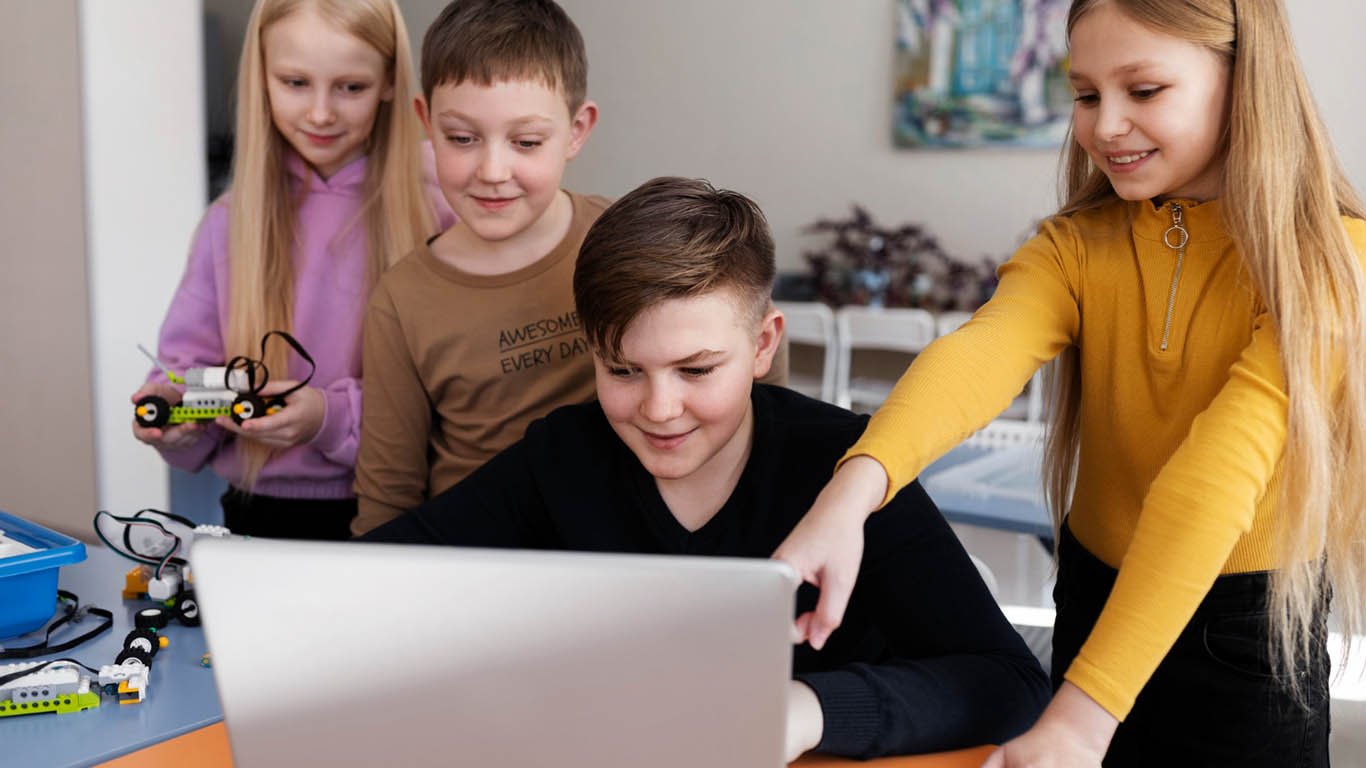The landscape of education is undergoing a transformative shift, driven by technological advancements, evolving societal needs, and a growing emphasis on inclusivity and accessibility. Traditional methods of teaching and learning are being reimagined to prepare students for a dynamic and interconnected world. Here, we explore the key innovations shaping the future of education and their potential to revolutionize learning.
Technology in the Classroom
Technology has become a cornerstone of modern education, enabling personalized and interactive learning experiences. Tools like tablets, laptops, and smartboards have replaced traditional chalkboards, creating more engaging and adaptable learning environments.
- Artificial Intelligence (AI): AI-powered tools are transforming education by offering tailored learning experiences. Adaptive learning platforms analyze individual student performance and adjust content to meet their unique needs, ensuring that no learner is left behind.
- Virtual and Augmented Reality (VR/AR): Immersive technologies like VR and AR bring subjects to life, allowing students to explore historical landmarks, conduct virtual science experiments, or even practice medical procedures in a simulated environment.
- Gamification: Incorporating game-like elements into education, such as rewards and challenges, enhances student engagement and motivation. Educational apps and platforms like Kahoot and Duolingo exemplify the effectiveness of gamified learning.
The Rise of Online Learning
The COVID-19 pandemic accelerated the adoption of online learning, highlighting its potential to make education more accessible and flexible. Massive Open Online Courses (MOOCs), virtual classrooms, and e-learning platforms have democratized education, enabling learners from all corners of the globe to access quality resources.
- Hybrid Learning Models: Combining online and in-person instruction, hybrid models offer the best of both worlds. Students benefit from the flexibility of online learning while retaining the social and collaborative aspects of traditional classrooms.
- Microlearning: Bite-sized, focused lessons delivered through digital platforms cater to modern learners’ shorter attention spans. This approach is particularly effective for skill-based training and professional development.
- Global Collaboration: Online learning platforms facilitate collaboration across borders, exposing students to diverse perspectives and fostering a sense of global citizenship.
Emphasis on Soft Skills and Lifelong Learning
As automation and AI reshape the workforce, there is a growing emphasis on developing soft skills such as critical thinking, creativity, communication, and emotional intelligence. Educational institutions are shifting their focus to prepare students for jobs that require adaptability and problem-solving.
- Project-Based Learning: Hands-on projects encourage students to apply their knowledge to real-world challenges, fostering critical thinking and teamwork.
- Lifelong Learning: With the rapid pace of technological change, continuous learning has become essential. Online certifications, professional courses, and upskilling programs empower individuals to stay relevant in their careers.
Inclusive and Accessible Education
Innovations in education are also addressing barriers to learning, ensuring that students from diverse backgrounds and abilities can thrive.
- Assistive Technologies: Tools like screen readers, speech-to-text software, and adaptive keyboards support students with disabilities, enabling them to participate fully in the learning process.
- Culturally Responsive Teaching: Incorporating diverse perspectives and materials into the curriculum promotes inclusivity and helps students feel represented and valued.
- Affordable Education: Open educational resources (OERs) and free online courses are reducing the financial burden of education, making learning opportunities accessible to a wider audience.
The Role of Educators
While technology plays a pivotal role, educators remain central to the learning experience. Teachers are evolving into facilitators and mentors, guiding students through personalized learning journeys.
- Professional Development: Continuous training equips educators with the skills to integrate technology and innovative teaching methods effectively.
- Collaboration: Platforms for teacher collaboration enable the sharing of best practices and resources, fostering a global community of educators.
Conclusion
Reimagining education is not just about integrating technology but also about creating a system that is equitable, adaptable, and future-focused. By embracing innovations such as AI, online learning, and inclusive practices, we can build an educational landscape that empowers every learner to reach their full potential. The future of education lies in its ability to evolve and inspire, preparing individuals to navigate and contribute to an ever-changing world.
.png?Expires=1832658243&Key-Pair-Id=K2ZIVPTIP2VGHC&Signature=NGVfyPXLR39AQZ6YUGveMBVTyMRdFvJiYqZnx9mC7VtFxyIIa9q~SbHl9DwnXjnXf0CmGVfCn8Hbemhjrl1LtwWL2fO3qd4XdBRfnQXUGY8rO-FvK~A-fJJckvkd7QmK4K2J5u0gtDP7ZGv5ADjV1HJsIJXijqSKYi64teFuHIPkGzAaYJXAaoodqIUr5ww5Eqkp6MXmByKia72RiLIDRyTJ5meYOJxsPmiC8NZQ4BFUMUw9TOTSGMirhTewv5pGrGh0IQZXUHn9v4P6wFiM-vRSiWES8P1~~jmk-VNYE8hrBsnCI689MtJrpDzPQzjaZYizDW~IIxTWGgGazki-6A__)

.png?Expires=1832658453&Key-Pair-Id=K2ZIVPTIP2VGHC&Signature=x3ubcT0LVpCDvjiLVW8tYNP4DA8zUKXlgFPmt4l9rdzVAE1gfV80kPn5YygMuT63TjjfJMYXVy1dmFYFsS-WCMiPnHtF5qXalIexnMeNiYv7AWHGvu61xgj~b96MoylpUwgHxlbgFT8vEqCoLTdVI2ZDTbLVyRRwqImjQ3PeZQ9jdx5ZCmnGo-DLewwf4rtvSFA2xXEMae-MyreVsH1gYiiEx4aMw4xuV9Z~4zVvXM4j0zU4-5twmftUTrQi9nFo7U5rw8NYG7tL1ih7bWrG~Nu-V6EPuMZQSlVI9KdF2sCh1M~4WVbDf6KsAZtyLzXVhR33TYubWSduN0c2Rv2PtQ__)